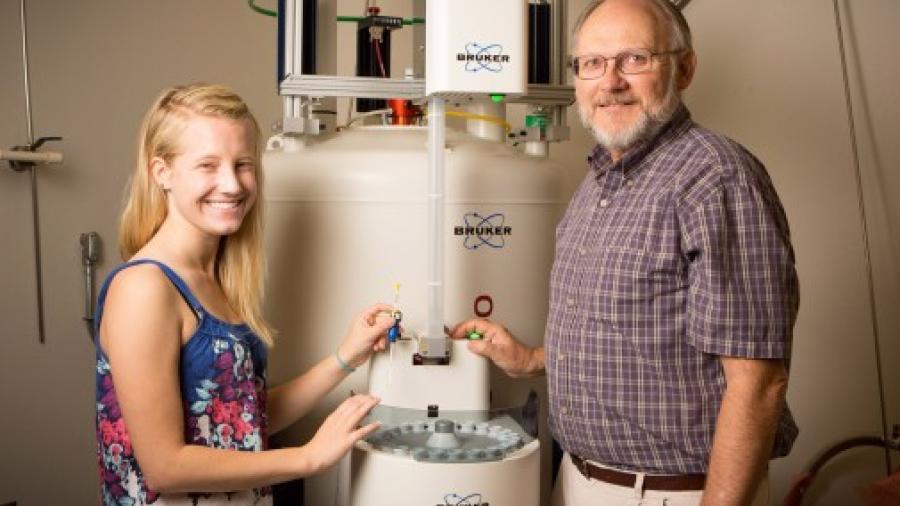Westmont Magazine Chemists Get a New Look at Molecules

A generous grant from the Fletcher Jones Foundation funds a new nuclear magnetic resonance spectrometer.
Chemistry professors and students can peer into the molecular world and determine the structure of molecules using a new Nuclear Magnetic Resonance (NMR) spectrometer. A $383,000 grant from the Fletcher Jones Foundation funded the 400-MHz instrument, which replaces a 300-MHz spectrometer that had reached the end of its 14-year life expectancy.
“The chemistry department is feeling energized with the new spectrometer and a challenge grant from the Stauffer Charitable Trust to endow our summer research program,” says Niva Tro, professor of chemistry. “The Fletcher Jones NMR will be an essential tool in our vital research program.”
Kristi Lazar, assistant professor of chemistry, relies on the NMR for her research, which she has published in scientific literature. Students in her organic chemistry laboratories and research group learn how to use it to check the purity of chemicals in protein synthesis and purification.
Westmont obtained the old spectrometer when Lazar was a student. “We used it frequently in class and during my undergraduate research,” she says. “When I entered graduate school, I was able to use the NMR there with little training, and I was thankful for the time my Westmont professors invested to teach me this invaluable technique.”
The spectrometer is housed in the Fletcher Jones Foundation NMR Laboratory in Whittier Science Building. Since 1984, Fletcher Jones has given about $1.3 million in grants for other technology upgrades and research equipment, which have enhanced Westmont’s biology, chemistry, engineering and physics, and psychology departments. The foundation also contributed $1.5 million toward endowing the Gaede Institute for the Liberal Arts and to establish the rotating Fletcher Jones Foundation Endowed Chair in the Social Sciences.
Fletcher Jones, cofounder of Computer Sciences Corp., left the bulk of his estate to the foundation that bears his name when he died in 1972. It supports private, independent, degree-granting institutions of higher education in California.